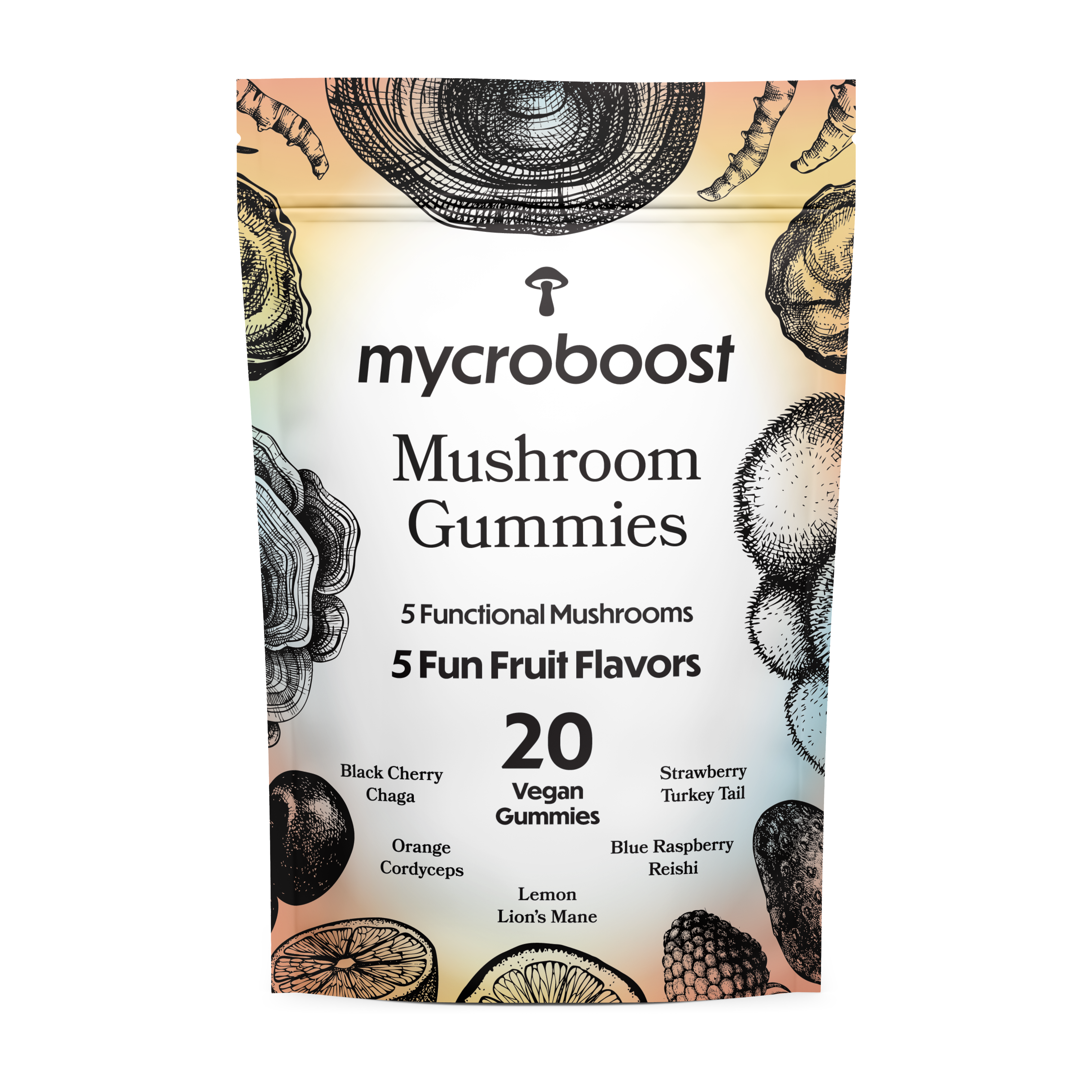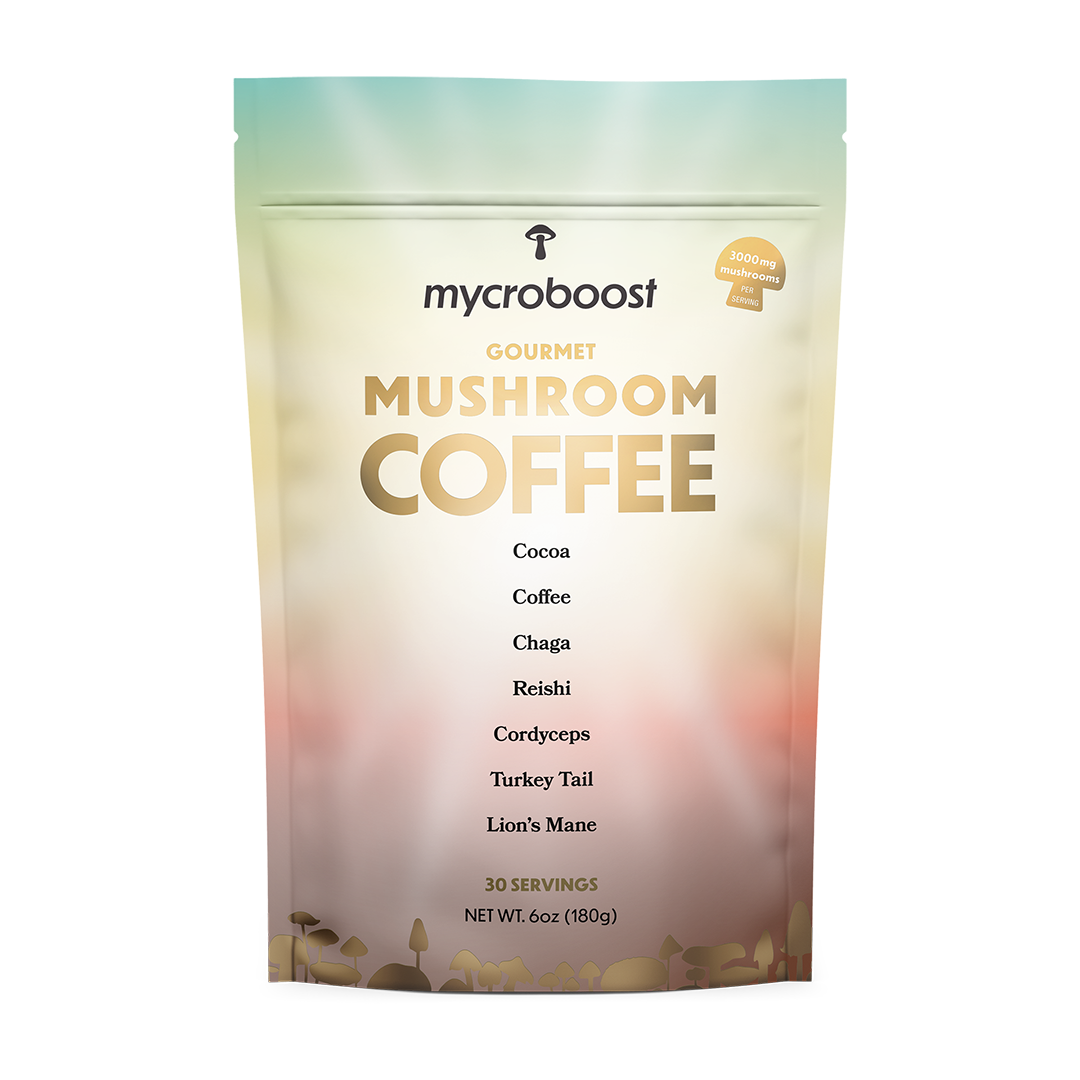Lion’s mane mushrooms (a.k.a. Hericium erinaceus) have exploded in popularity in the Western world. But lion’s mane mushroom benefits have been known to Asian cultures for thousands of years, where they were used in TCM (Traditional Chinese medicine).
We’ve all seen plant-based supplements marketed with a ton of hype—but the science behind lion’s mane mushroom benefits is substantial.
Lion’s mane mushrooms contain a range of bioactive compounds, including beta-glucans, polysaccharides, erinacines, and hericenones, all of which interact with various receptors in the human body.
But what is lion’s mane good for, exactly? Here’s what the science says about lion’s mane mushrooms benefits for our brains, immune systems, digestion and overall health:
Lion’s mane has strong scientific evidence indicating it’s good for your brain.

Lion’s mane mushrooms have been found to contain compounds that can stimulate the growth and repair of nerve cells in the brain. These compounds, called erinacines and hericenones, have been shown to have neuroprotective and cognitive-enhancing effects,
In a 2015 study published in the Journal of Agricultural and Food Chemistry, researchers found that lion’s mane extract had neuroprotective effects in rats with Alzheimer’s disease, including improvements in cognitive function and memory.
Another study published in Phytotherapy Research found that lion’s mane extract improved cognitive function in healthy adults aged 50 to 80 years old. The study subjects had experienced a mild loss of cognitive functions due to age or underlying conditions, but their cognitive health improved significantly after taking lion’s mane for 16 weeks.
A 2021 study in Antioxidants focused on subjects who’ve experienced traumatic brain injury (TBI). The study found that both lion’s mane mushroom and turkey tail mushrooms exhibit neuroprotective effects against the inflammation and oxidative stress that accompanies TBI.
While more research is needed to fully understand the potential benefits of lion’s mane mushroom for mood and depression, and it’s always essential to talk with a medical professional before adding any new supplement to your regimen, there are some encouraging findings related to lion’s mane benefits and depression. Many of these findings have to do with lion’s mane’s effect on the brain.
People with depression often experience cognitive impairment, such as difficulty concentrating and memory problems. Some research suggests that lion’s mane mushroom may help improve cognitive function, which may in turn help alleviate depression symptoms.
Depression has been linked to reduced brain volume and decreased neuroplasticity. Because lion’s mane mushrooms have been shown to promote the growth of new brain cells and protect existing brain cells from damage, these neuroprotective properties may positively impact people struggling with depression.
Some research suggests that depression may be linked to chronic inflammation in the brain.
Lion’s mane mushrooms contain anti-inflammatory compounds, which may help reduce inflammation in the brain and alleviate depression symptoms.
This 2020 study, “Therapeutic Potential of Hericium erinaceus for Depressive Disorder,” published in the International Journal of Molecular Science, explores many of the different theories of action around lion’s mane and mood elevation.
We need more study—but many scientists say lion’s mane is worth examining as a tool for helping people who struggle with depression.
Lion’s mane may provide immune system support.

Lion’s mane mushrooms contain polysaccharides, complex carbohydrates that can help to boost the immune system by increasing the production of white blood cells.
In a study published in the Journal of Immunology Research, researchers found that polysaccharides from lion’s mane mushrooms increased the production of white blood cells and improved the immune response in mice.
Another piece published in Frontiers in Immunology found that, in animal studies, lion’s mane stimulated the immune system.
Lion’s mane can impact digestive health.
Lion’s mane mushrooms contain beta-glucans, prebiotic fibers that can help to improve digestive health by promoting the growth of beneficial gut bacteria.
A study published in Evidence-Based Complementary and Alternative Medicine found that lion’s mane improved symptoms of gastritis in mice by reducing inflammation and protecting the stomach lining.
Lion’s mane mushrooms have anti-inflammatory and anti-oxidant properties.
Lion’s mane contains compounds which may help to reduce inflammation and pain, as well as protecting the body against oxidative damage caused by free radicals.
In a study published in the International Journal of Medicinal Mushrooms, esearchers found that lion’s mane extract had antioxidant effects in rats, reducing oxidative stress and improving liver function.
While we need more research to fully understand its effects, the science behind this particular mushroom is nothing short of amazing.
Scientists aren’t usually given to hyperbole, which makes this conclusion by the researchers at the Journal of Agricultural and Food Chemistry even more astounding:
“The health-promoting properties of the mushroom fruit bodies, mycelia, and bioactive pure compounds include antibiotic, anticarcinogenic, antidiabetic, antifatigue, antihypertensive, antihyperlipodemic, antisenescence, cardioprotective, hepatoprotective, nephroprotective, and neuroprotective properties and improvement of anxiety, cognitive function, and depression.”
Want to find out whether lion’s mane could make a difference in your health and energy?
Check out our Mycroboost Brain Mushroom Softgels and support your hardworking brain with 750 mg of organically grown lion’s mane extract (plus 750 mg of organically grown cordyceps extract!).
Our Mycroboost Medicinal Mushroom Gummies and Mycroboost Wellness Mushroom Softgel feature lion’s mane alongside a medley of functional mushroom extracts formulated to help your body and mind thrive.











